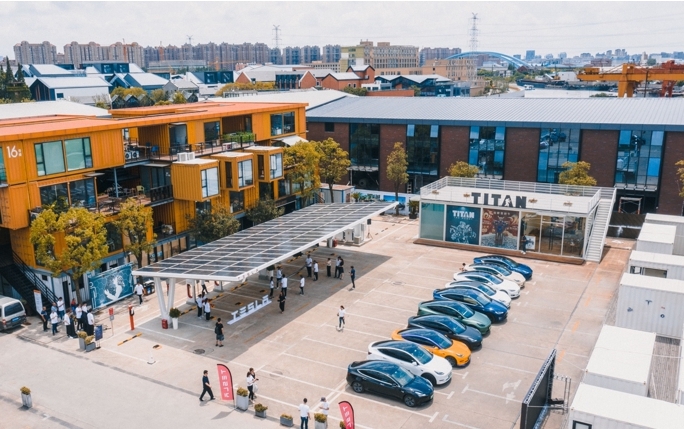Recently, Volkswagen’s power storage container (PSC) for battery energy storage system officially began pilot operations. Currently, the device is fitted with power batteries that correspond to the specifications of Volkswagen ID.3 and ID.4 models, with a total net capacity of 570 kWh, consisting of 96 MEB single-unit modules with an average of approximately 5.94 kWh per module.
If this pilot is successful, old batteries that Volkswagen Group phases out may have a “second life.”

Volkswagen’s experimental device is set up at the Zwickau plant in Germany, which has already produced six electric cars based on the MEB platform.
Currently, the factory’s power storage container can provide power for up to four local fast charging stations with a capacity of 150 kW each, not only making better use of surrounding photovoltaic facilities but also reducing the electric surge generated during rapid car charging.
Volkswagen said that the use of PSC in residential areas and areas with limited power supply (such as 11 kW or 22 kW) can greatly accelerate the construction process of resident fast charging stations.

Comments
We are not unfamiliar with the power storage facilities of car companies, as Tesla has already established several Supercharging stations with solar energy battery storage systems and plans to build more storage centers in the future.

Volkswagen, who is currently making strides in the field of new energy, hopes to quickly establish its own power storage and replenishment system.
The main purpose of this experiment is for Volkswagen to recycle power batteries that have suffered capacity decline.
As the penetration rate of electric cars continues to increase, the number of power batteries that will be phased out will also increase significantly. For those power batteries with remaining capacity of 60-70%, they may have been dismantled from electric cars and sent directly to battery recycling plants. However, in reality, there is a considerable amount of time between the phasing out of these batteries from the car and their complete disposal.
If Volkswagen successfully uses these old power batteries in its own energy storage containers, it can not only help expand its battery replenishment and storage system, but also extend the life of old batteries and effectively prevent ecological damage caused by them.
Undoubtedly, the recycling and reuse of old batteries has positive significance for Volkswagen and the whole world.
This article is a translation by ChatGPT of a Chinese report from 42HOW. If you have any questions about it, please email bd@42how.com.
